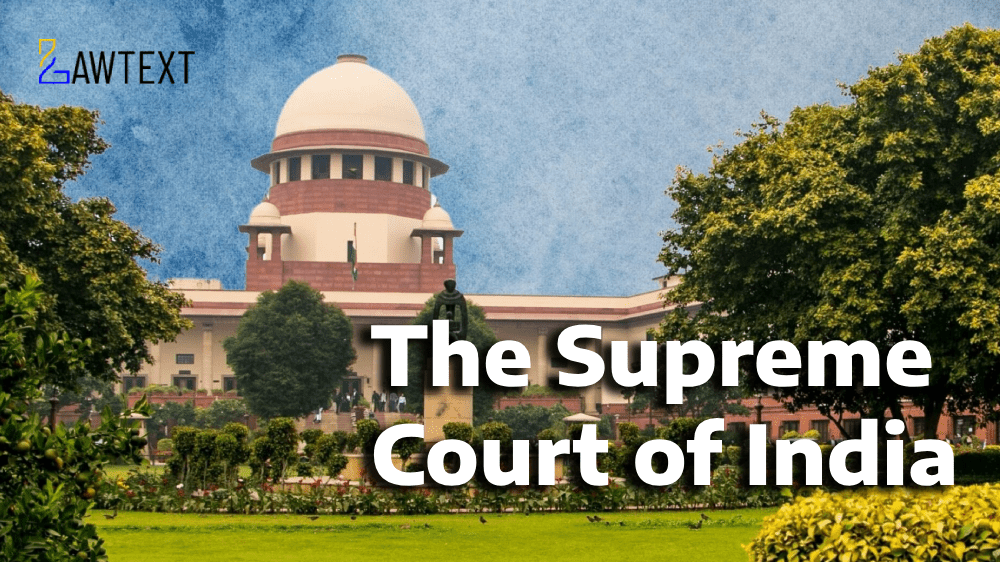

The court held that government authorities, while exercising discretion in contractual matters, must ensure fairness, transparency, and equality. The rejection of the appellant’s bid and the acceptance of Respondent No. 8’s non-compliant bid was arbitrary and discriminatory, thus violating Article 14. BCCL’s actions were not consistent with the terms of the NIT and were not justified by legal standards, leading to the annulment of the tender award.
The Supreme Court of India overturned Bharat Coking Coal Limited’s (BCCL) decision to reject the technical bid of Banshidhar Construction Pvt. Ltd. (the appellant) while accepting the bid of another company (Respondent No. 8), despite non-compliance with mandatory tender requirements. The court found the decision arbitrary and discriminatory, violating Article 14 of the Constitution. It ruled that both bids should have been treated equally, and since the appellant had fulfilled the necessary requirements, their bid rejection was unjustified. The court also set aside any agreements made based on the flawed decision and ordered BCCL to restart the tender process.
Tender Dispute (Para 1-2)
The appellant, Banshidhar Construction Pvt. Ltd., challenged BCCL's rejection of their technical bid while accepting the bid of Respondent No. 8, which failed to submit essential documents as per the tender requirements.
High Court Ruling (Para 3)
The appellant approached the Jharkhand High Court after their bid was rejected by BCCL’s Technical Bid Committee. The High Court upheld BCCL’s decision, which prompted the appellant to escalate the matter to the Supreme Court.
Tender Overview (Para 4-5)
BCCL issued a Notice Inviting Tender (NIT) on 16.08.2023 for a coal mining project. The appellant submitted a bid with proper authorization and supporting documents, but their technical bid was rejected on May 6, 2024, for an alleged discrepancy in the Power of Attorney document.
Bid Evaluation (Para 6-7)
Respondent No. 8’s technical bid was accepted despite failure to submit mandatory financial documents before the due date. These documents were only submitted later after BCCL requested clarifications.
Arguments from Appellant (Para 8)
The appellant argued that BCCL’s decision was arbitrary and biased, as they were unfairly disqualified based on technicalities, while Respondent No. 8 was given leniency to submit missing documents after the bid submission deadline.
Arguments from Respondent (Para 9-10)
BCCL defended their decision, claiming that the appellant’s Power of Attorney was notarized after the bid documents were signed, which was inconsistent with the tender rules. Respondent No. 8’s late submission of documents was framed as an acceptable "shortfall."
Court's Analysis (Para 11-17)
The Supreme Court critically examined the terms of the tender (Clause 10 of NIT) and found that Respondent No. 8 failed to comply with mandatory requirements. It ruled that the appellant’s Power of Attorney issue was wrongly used as a basis for rejection and emphasized that BCCL failed to justify why they accepted Respondent No. 8’s non-compliant bid.
Legal Precedents (Para 18-29)
The court referred to various legal principles regarding fairness in tender processes, citing the need for decisions to be free from arbitrariness and discrimination. It held that the actions of BCCL violated the fairness doctrine, Article 14 of the Constitution, and public trust.
Judgment (Para 30-31)
The Supreme Court set aside BCCL’s decision to reject the appellant’s bid and annulled any contracts or processes initiated based on the flawed decision. It ordered BCCL to issue a fresh tender, ensuring that all bidders are treated equitably.
#TenderDispute #BCCL #GovernmentContracts #Article14 #Arbitrariness #PublicContracts #JudicialReview
Citation: 2024 LawText (SC) (10) 44
Case Number: CIVIL APPEAL NO. 11005 OF 2024 (@ SPECIAL LEAVE PETITION (CIVIL) NO. 17383/2024)
Date of Decision: 2024-10-04
Case Title: BANSHIDHAR CONSTRUCTION PVT. LTD. VERSUS BHARAT COKING COAL LIMITED & OTHERS
Before Judge: [BELA M. TRIVEDI J. , SATISH CHANDRA SHARMA J. ]
Appellant: BANSHIDHAR CONSTRUCTION PVT. LTD.
Respondent: BHARAT COKING COAL LIMITED & OTHERS